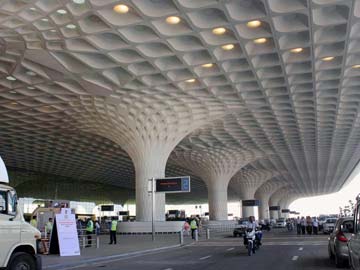By E. J. Nathaniel Daygbor
The residents of the Mount Barclay Community within the Johnsonville Township, outside of Monrovia woke up on last Friday morning in total dismay when the remains of dead Ebola victims were reportedly seen, eaten by dogs, something reminiscent of the brutal civil war here, when dogs ate dead bodies on the streets.
The Liberian Government, through the Ministry of Health and Social Welfare, buried some unaccounted-for corpses, suspected to have died from the Ebola Virus in that township few weeks ago.
The burial was done in a hurry at night following a standoff in the day between residence and the Ministry of Health burial team. The former had refused to grant the authority a piece of land to carry out the burial. The dogs, in their numbers, were seen pulling the bodies out of the shadowed grave and hastily eating them.
A resident, who spoke to the NewDawn, said that the action of the dogs has posed a serious health hazard to the entire Mount Barclay Community. Mr. Alfred Wiah noted that the dogs could easily spread the virus through further interactions with community dwellers.
According to Mr. Wiah, upon discovery of the dogs' behavior, some young men immediately contacted the Health Ministry, but to no avail. The young men also attempted to kill all of the dogs, but some escaped the scene, making the terrain very scaring for the residents.
He then expressed his disappointment in the manner and form the Liberian Government has treated the township. "We are very disappointed in the Health Ministry, especially the government that took an oath to defend and protect us; to see them act in such manner is unacceptable and we'll never allow the government come to bury any longer. They will be resisted by us because I think the government has failed to protect us- why bring Ebola bodies and mot bury them well,"? He explained in this paper.
According to him, some residents were deciding to leave the township in order to save their respective families, noting that since the incident occurred last Friday, the government has failed to clean the "mess" by reburying the dead properly. When the Commissioner of the Johnsonville Township, Mr. Melvin Bettie, was contacted yesterday, he confirmed the information, but added that his leadership was working with the community leadership to find a solution to the situation.
"I received the information already through the community chairman and I've sent a delegation there to see how we can revise the situation because it is embarrassing and it poses serious hazard to the community's dwellers," he said. http://allafrica.com/stories/201408260125.html?viewall=1
The residents of the Mount Barclay Community within the Johnsonville Township, outside of Monrovia woke up on last Friday morning in total dismay when the remains of dead Ebola victims were reportedly seen, eaten by dogs, something reminiscent of the brutal civil war here, when dogs ate dead bodies on the streets.
The Liberian Government, through the Ministry of Health and Social Welfare, buried some unaccounted-for corpses, suspected to have died from the Ebola Virus in that township few weeks ago.
The burial was done in a hurry at night following a standoff in the day between residence and the Ministry of Health burial team. The former had refused to grant the authority a piece of land to carry out the burial. The dogs, in their numbers, were seen pulling the bodies out of the shadowed grave and hastily eating them.
A resident, who spoke to the NewDawn, said that the action of the dogs has posed a serious health hazard to the entire Mount Barclay Community. Mr. Alfred Wiah noted that the dogs could easily spread the virus through further interactions with community dwellers.
According to Mr. Wiah, upon discovery of the dogs' behavior, some young men immediately contacted the Health Ministry, but to no avail. The young men also attempted to kill all of the dogs, but some escaped the scene, making the terrain very scaring for the residents.
He then expressed his disappointment in the manner and form the Liberian Government has treated the township. "We are very disappointed in the Health Ministry, especially the government that took an oath to defend and protect us; to see them act in such manner is unacceptable and we'll never allow the government come to bury any longer. They will be resisted by us because I think the government has failed to protect us- why bring Ebola bodies and mot bury them well,"? He explained in this paper.
According to him, some residents were deciding to leave the township in order to save their respective families, noting that since the incident occurred last Friday, the government has failed to clean the "mess" by reburying the dead properly. When the Commissioner of the Johnsonville Township, Mr. Melvin Bettie, was contacted yesterday, he confirmed the information, but added that his leadership was working with the community leadership to find a solution to the situation.
"I received the information already through the community chairman and I've sent a delegation there to see how we can revise the situation because it is embarrassing and it poses serious hazard to the community's dwellers," he said. http://allafrica.com/stories/201408260125.html?viewall=1













